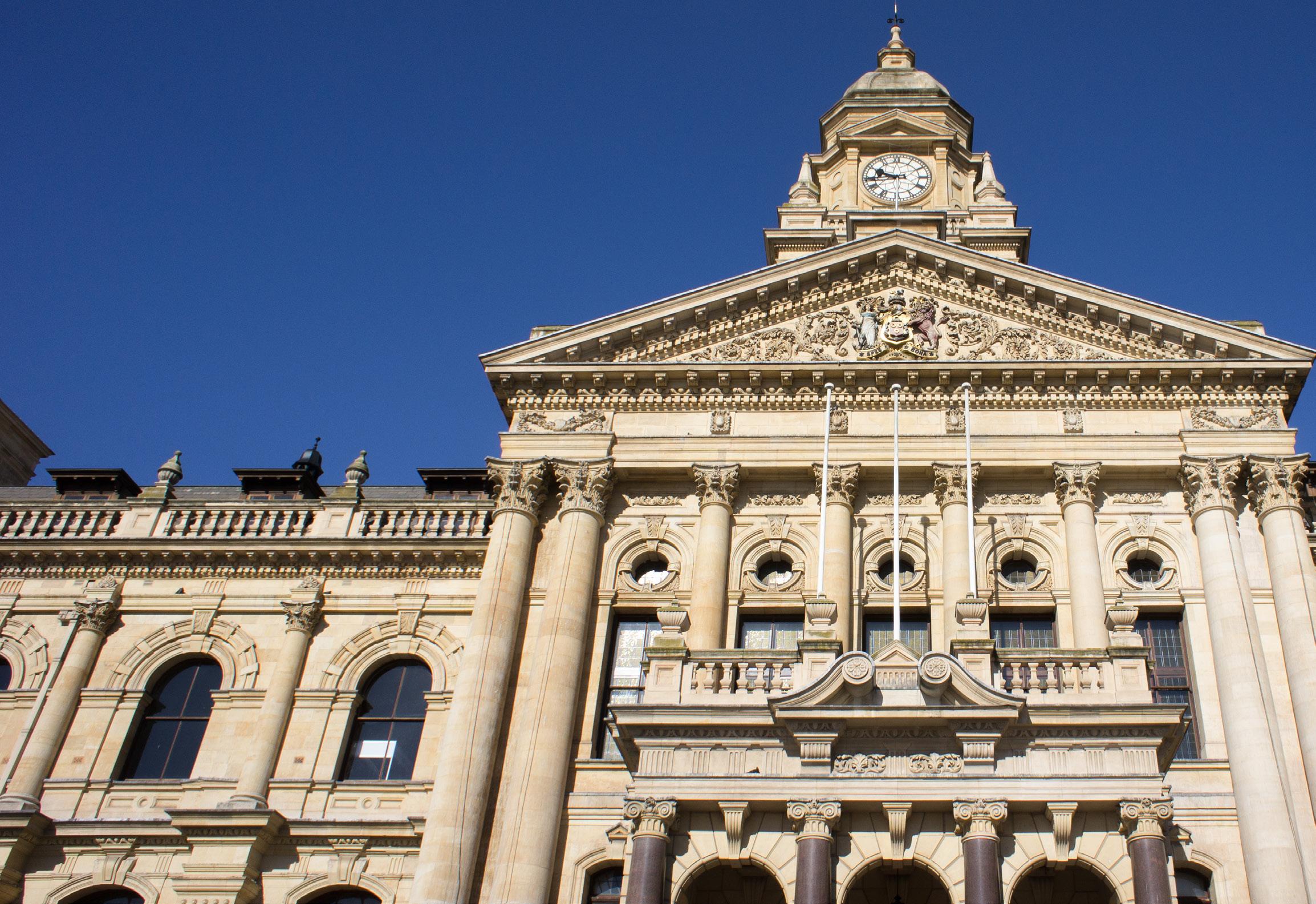
8 minute read
STATE OF THE NATION ADDRESS 2023
PRESIDENT CYRIL RAMAPHOSA OUTLINES GOVERNMENT’S KEY POLICY OBJECTIVES TO UNLEASH THE NATIONS POTENTIAL
President Ramaphosa delivered a historic State of the Nation Address (SONA) on 9 February 2023 at the Cape Town City Hall, which was temporarily declared a parliamentary precinct to facilitate hosting the SONA. This is the same venue former president Nelson Mandela addressed the nation for the first time after his release from prison in 1990.
Advertisement
In his opening remarks, President Ramaphosa highlighted our distinct qualities as a nation and how we should strive to position ourselves beyond our challenges.
“We are not defined by the minerals under our earth or the spectacular landscape above it. We are not even defined by the languages we speak or the songs we sing or the work we do. We are, at our most essential, a nation defined by hope and resilience. “It was hope that sustained our struggle for freedom, and it is hope that swells our sails as we steer our country out of turbulent waters to calmer seas.
“Even in these trying times, it is hope that sustains us and fuels our determination to overcome even the greatest of difficulties”, said President Ramaphosa.
He went on to reflect on the global COVID-19 pandemic which devasted the world through lost lives, unemployment, and closed companies. The President highlighted that today the country’s economy is greater than it was before the pandemic, and this is attributed to the nation working together to overcome the pandemic.
He stated that between the third quarters of 2021 and 2022, around one million new jobs were created in our economy.
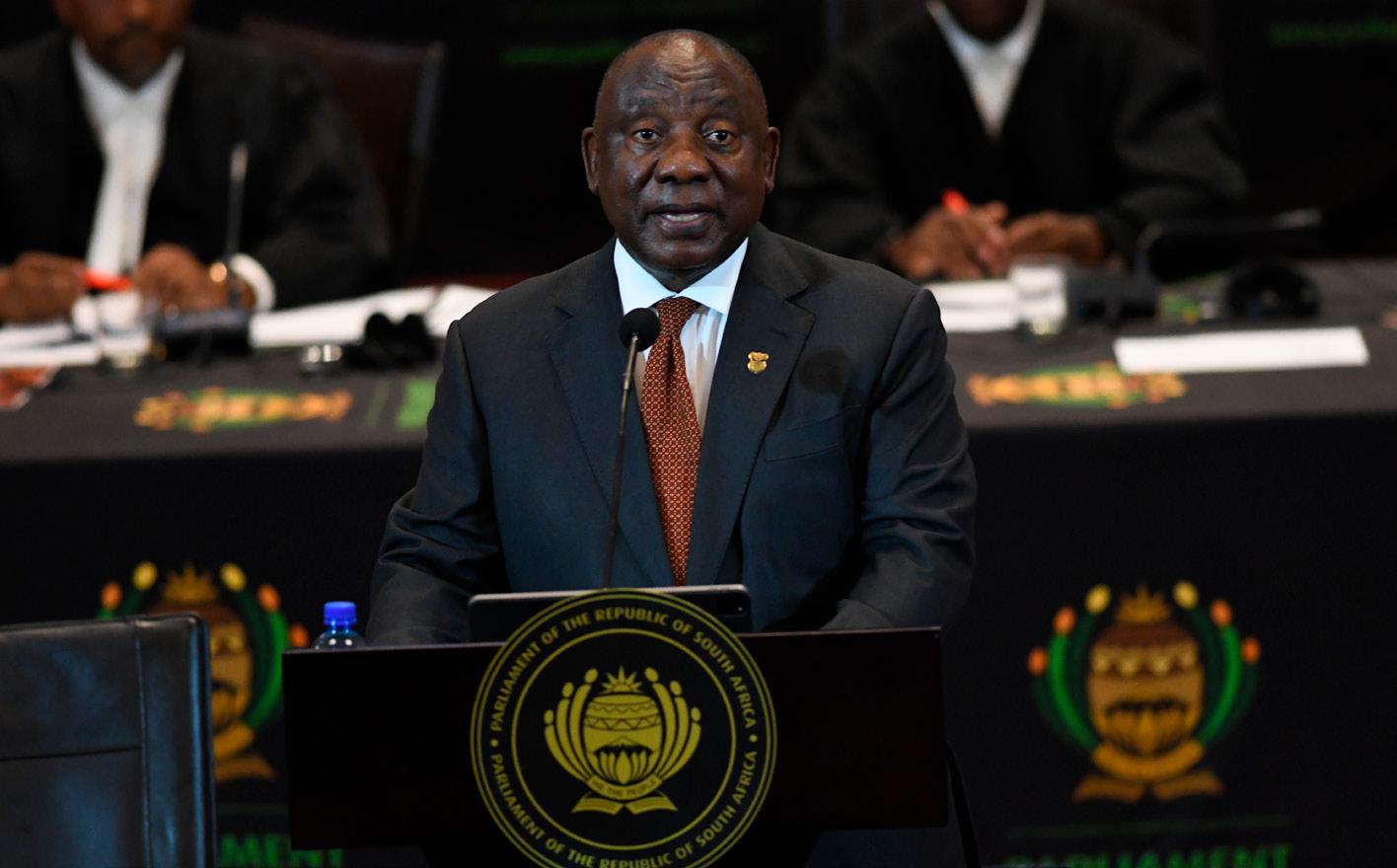
Energy crises in South Africa
President Ramaphosa declared the country’s energy crises a national disaster, with immediate effect. He will appoint a Minister of Electricity in the Presidency, who will work full time with the Eskom Board and management on ending loadshedding and to ensure that the Energy Action Plan is implemented without delay.
“The state of disaster will enable government to provide practical measures that it needs to take to support businesses in the food production, storage and retail supply chain, including for the roll-out of generators, solar panels and uninterrupted power supply,” said the President.
He also acknowledged the urgency of having a reliable supply of electricity for businesses to grow, assembly lines being operational, irrigation and basic services running without interruption.
“Without a reliable supply of electricity, our efforts to grow an inclusive economy that creates jobs and reduces poverty will not succeed. Therefore, as we outline our agenda for the year ahead, our most immediate task is to dramatically reduce the severity of load-shedding in the coming months and ultimately end load-shedding altogether. Under these conditions, we cannot proceed as we usually would. The people of South Africa want action, they want solutions, and they want government to work for them. They simply want to know when a problem like loadshedding will be brought to an end,” said the President.
In July last year, President Ramaphosa announced a clear action plan to address the energy crisis. This was to address the electricity shortfall of 4 000 to 6 000 megawatts (MW). The plan outlined five key interventions to:
• Fix Eskom’s coal-fired power stations and improve the availability of existing supply
• Enable and accelerate private investment in generation capacity
• Accelerate procurement of new capacity from renewables, gas, and battery storage
• Unleash businesses and households to invest in rooftop solar
• Fundamentally transform the electricity sector to achieve long-term energy security. Experts agree that this plan is the most realistic route to end loadshedding. >
Education
During his address, the President noted the access to quality education being the most powerful instrument to end poverty. He stated schools must be safe, allowing effective learning and teaching to take place.
Water management system
President Ramaphosa highlighted the importance of a reliable water supply for the well-being of citizens and for growing the economy. Currently, the Department of Water and Sanitation is leading the process of investing in major infrastructure projects, such as:
The Lesotho Highlands project
• This year the full-scale construction works for the Lesotho Highlands project Phase Two will continue. The President explained the importance of ensuring security of water supply to Gauteng, Northern Cape, Mpumalanga, North West and the Free State.
Construction of dams
• Several decades after it was first proposed and nine years after a sod-turning ceremony was held, the first phase of the Umzimvubu Water Project will start in the next financial year. This phase, which involves construction of the Ntabelanga Dam, irrigation infrastructure and the distribution of water to communities, will be financed by government.
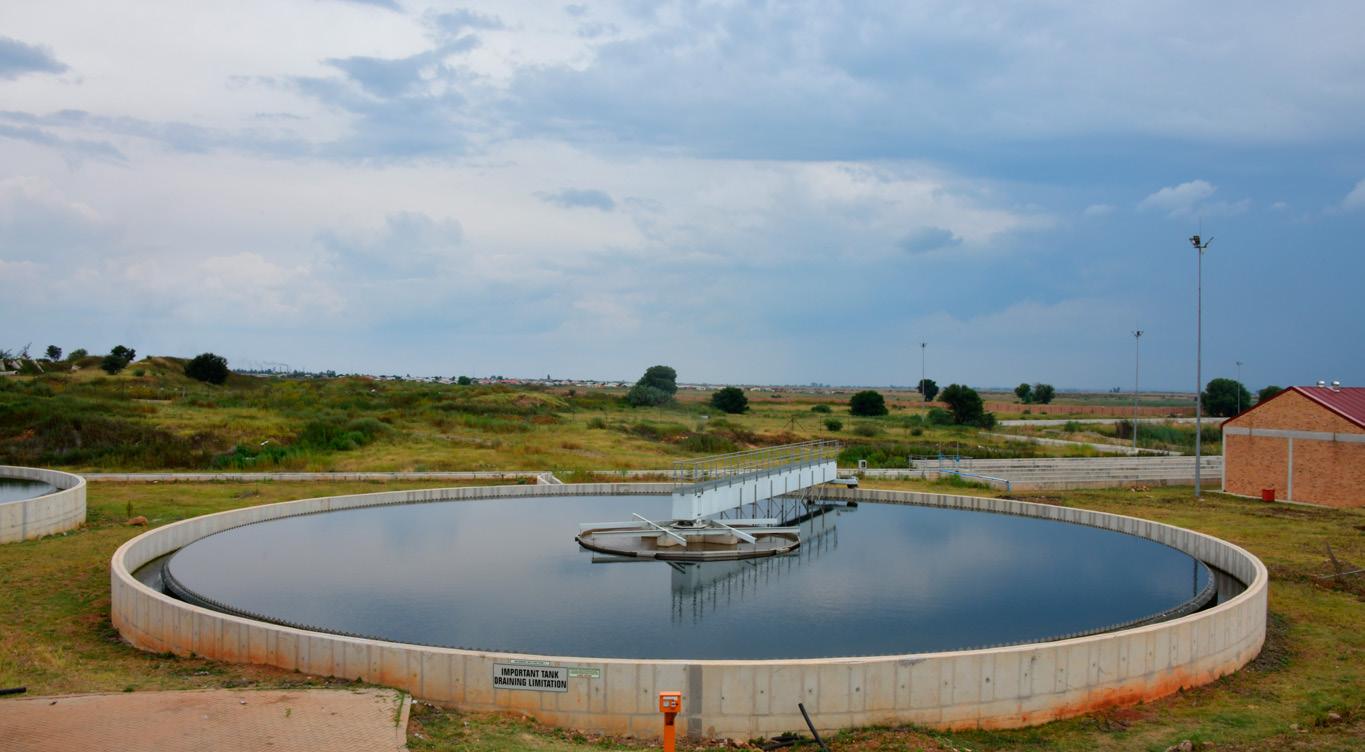
“The next phase will be the construction of the Lilane Dam, which will include a hydropower station. Major projects to increase the capacity of the Clanwilliam Dam, Hazelmere Dam and the Tzaneen Dam will improve the supply of water to the West Coast, eThekwini and the eastern part of Limpopo. Wateruse licences Last year, government announced a comprehensive turnaround plan to streamline the process for water use licence applications, which is vital to enable greater investment,” said the President.
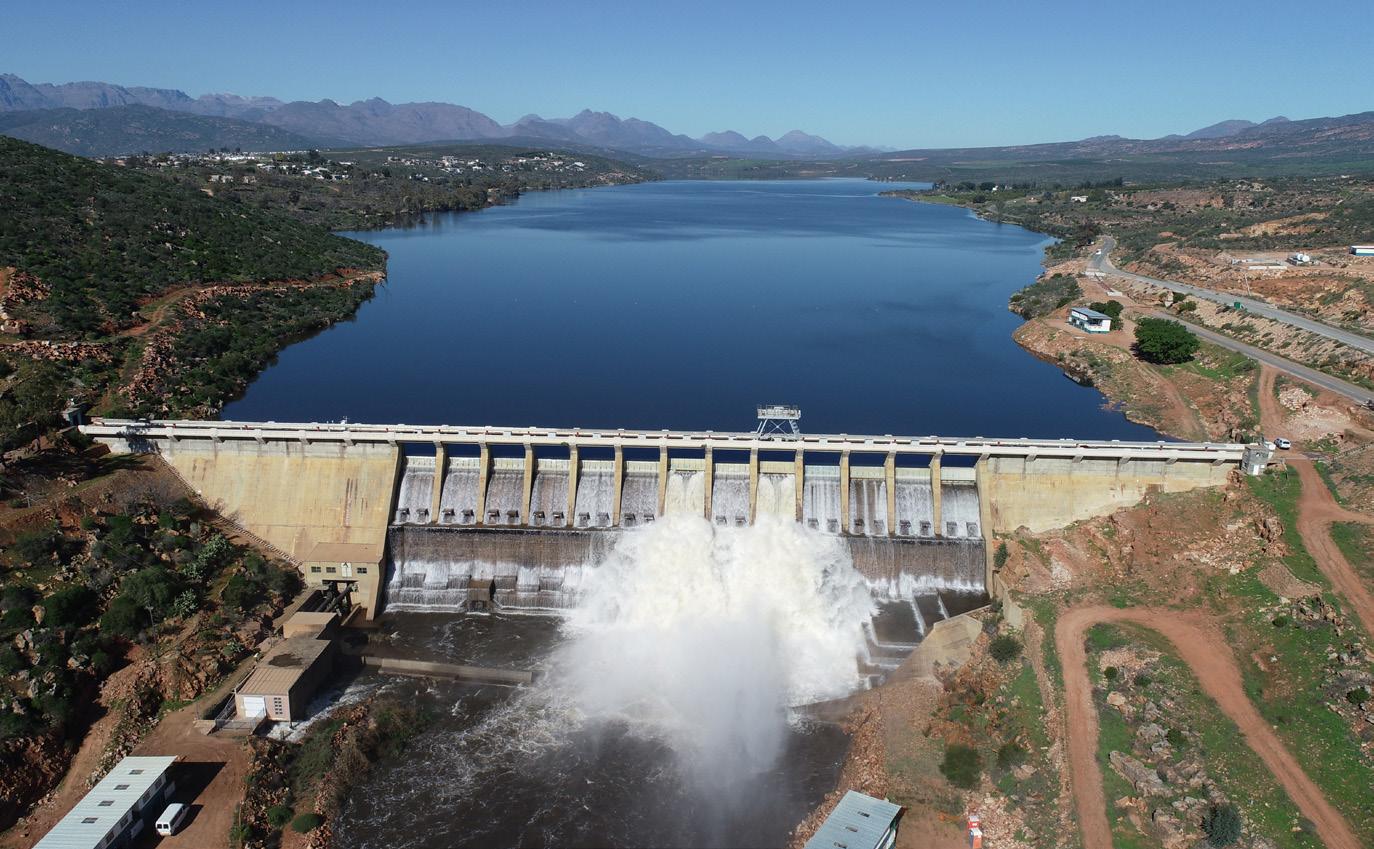
“Government needs to start with children who are very young, providing them with the foundation they need to write and read for meaning, to learn and develop. It is, therefore, significant that the number of children who receive the ECD subsidy has more than doubled between 2019 and 2022, reaching one-and-a-half million children. The Department of Basic Education is streamlining the requirements for ECD centres to access support and enable thousands more to receive subsidies from government. While at the other end of the basic education journey, government applauds last year’s matric pass rate of 80%, with all provinces showing improved results,” explained the President. In addition, he highlighted this was up from 76% the year before and there was an improvement from 55% in 2019 to 64% 2022. These figures indicate the performance of learners from disadvantaged schools is visibly improving, further validating the value of the government’s support towards them.
This year, government plans to finalise the Comprehensive Student Funding Model for higher education, particularly for students who fall outside the current National Student Financial Aid Scheme criteria; reaching those who are known as the ‘missing middle.’
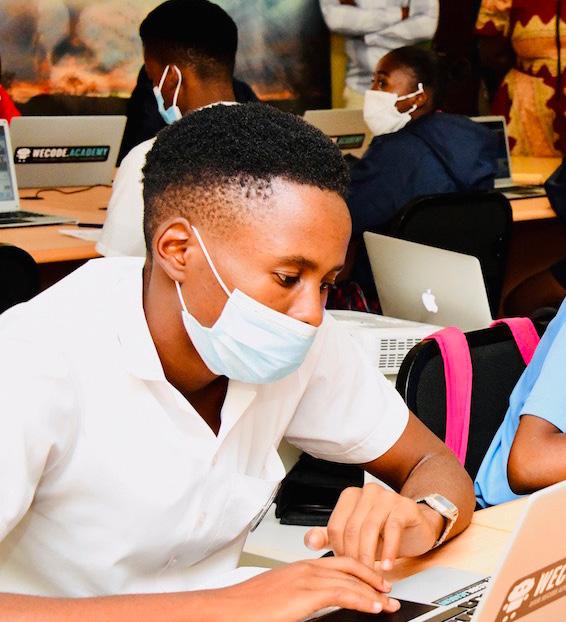
Fighting crime and corruption
The Government is strengthening the South African Police Service (SAPS) to prevent crime and improving the capacity of the National Prosecuting Authority (NPA) and courts to ensure perpetrators are brought to justice, this is according to the President. He added more police visibility in communities by setting up specialised teams, primarily focusing on specific types of crimes which part of the state’s crime prevention strategies. In addition, the government recruited 12 000 new police personnel resulting in more than 10 000 new recruits who graduated from police academies and a further 10 000 will also be recruited and trained this year. Last year, President Ramaphosa said government would take decisive action against corruption and make a clear break with the era of state capture. The State Capture Commission headed by Chief Justice Raymond Zondo completed its work and submitted the final part of its report in June last year. In an effort to encourage and address whistle-blowers capacity to come forward, there is an urgency to also protect them. During his address, the President said the government is working toward legally providing protection for whistle-blowers through the Witness Protection Unit and introducing amendments to the Protection Disclosure Act of 2000. “Work is already underway to improve access to the witness protection programme for public servants that expose maladministration, corruption, and unethical conduct, “explained the President.
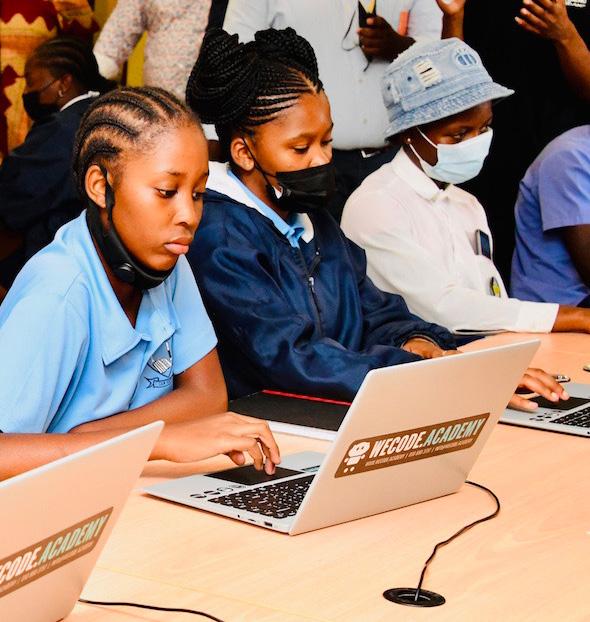

Economic Growth
President Ramaphosa highlighted the strategy to reduce unemployment, is through our economy growing at a rapid rate. He went on to revert to the SONA last year, where he spoke about the government’s intention to create a comprehensive social compact, aimed at collaborating with all social partners in common programmes in order to rebuild the economy and create higher growth.
“We were not able to conclude a social compact in the timeframe we had envisaged because a number of new circumstances emerged that made it difficult for social partners to forge a consensus. The social partners have expressed their intention to conclude a social compact and have continued to work on a framework to enable joint action in key areas such as energy, transport and logistics, employment creation and skills development, investment and localisation, social protection, crime and corruption,” said President Ramaphosa.
He added, although the government remains committed to creating a new agreement within all sectors of society, in specific areas they have implemented practical collaborations. “We have seen the benefits of this approach to promote investment and to develop master plans in sectors of the economy such as automotive, clothing and textiles, poultry, sugar, agriculture and global business services,” announced the President.
It is evident President Ramaphosa has a tremendous task ahead of him however, in his closing remarks he reminded the nation that, “We need, as a nation, at this time more than any other, to reveal our true character. We need to work together and leave no one behind.” –President Ramaphosa










